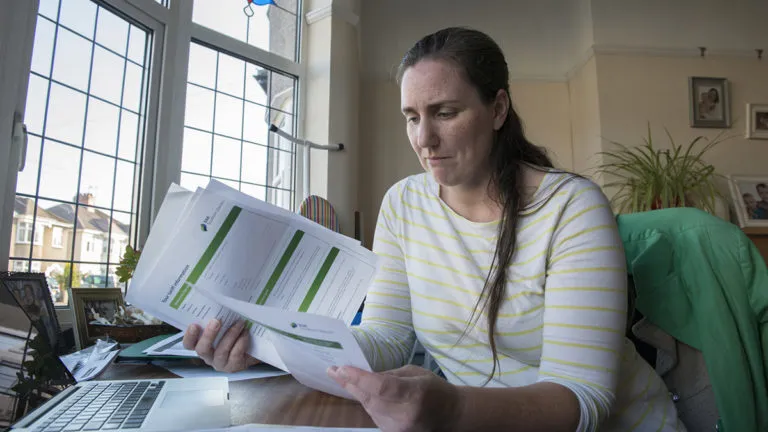IFS: housing benefit bill signal of failed social housing policy. But we need it more than ever to hold back homelessness
Published: by Steph Kleynhans

Yesterday’s article by the Director of the Institute of Fiscal Studies (IFS), Paul Johnson, made a very welcome contribution to the growing debate that increasing social house building is the key to fixing our housing crisis. As our Social Housing Commission report showed, investment in social housing will reduce the spiralling cost of housing benefit.
As the article points out, housing benefit gets considerably less coverage when it comes to debates about homelessness. We agree it’s about time housing benefit is seen as integral to housing policy.
As the IFS demonstrates, ‘more and more low–income families are having to find more and more money to pay rents that they can ill-afford’ because housing benefit levels have risen much slower than rents. This is causing homelessness, debt and extreme poverty.
This is government policy and must be reversed
Local Housing Allowance (LHA), the housing benefit for private renters, was designed to cover the lowest third (30th percentile) of properties in your local rental market according to the home size you were entitled to. But as the IFS points out, benefit entitlements in the private sector have been de-linked since 2012 as a matter of policy. In that year, the government uprated the LHA by just 1%.
LHA rates were then not increased in line with rents for three years before eventually being frozen completely as part of the wider benefit freeze in 2016. At the same time, rents in England have increased by 14% since April 2012 and so LHA has fallen way behind the cost of private rents across the country.
Virtually the whole of England is unaffordable to claimants
The IFS highlights how the discrepancy between entitlement and local rent levels now varies dramatically across the country. But as our analysis shows, the problem of LHA shortfalls now affects the entire country. For 2019/20, a two–bedroom home at the bottom third of the private rental market is unaffordable on the LHA rate in over 9 out of 10 areas in England. In 21% of areas, the shortfalls are over £100 a month – not an amount people in poverty can budget around.
That means a family with one or two young children claiming LHA would only be able to cover their whole rent using their housing benefit in a very small proportion of areas. Everywhere else in the country, that same family would have to find extra money, often from subsistence benefits which aren’t intended to cover rent, or by taking on other debts to make up that shortfall. This is unacceptable.
As a result, LHA is not covering anywhere near the 30th percentile of the market in most areas, not just London. Last year, in Central Manchester, the LHA covered just 18% of the private rental market whilst in Birmingham, LHA covers 13% of the market. In Bath, Bedford and the Chilterns it covers 9% and in Cambridge just 7%. Many will be unable to find one of these 7% of properties that are not already occupied or not in a state of disrepair and so will be putting themselves at risk of debt or homelessness.
H****ousing benefit is the solution to prevent****ing homelessness**, not the problem**
As the IFS point out, there’s no doubt that the rising housing benefit bill is ‘the very expensive canary in the coalmine’ of our broken housing system. But far from being the problem, as the article suggests, by pushing up rents, housing benefit prevents homelessness when housing policy fails by helping people afford rising market rents. Far from disincentivising families from entering work, it supports thousands of families already in work to afford their rents (over a third of claimants are in paid work).
The cuts and freezes to housing benefit haven’t made savings. They’ve led to increased homelessness, particularly from the private rental sector, as landlords – rather than drop their rents – can choose to evict people who can’t afford them. Our analysis shows the LHA freeze alone will make a million households at risk of homelessness by 2020. This serves to shift any savings from government to local authorities, which have a duty to accommodate homeless households. Insecure and poor quality temporary accommodation is now costing local government £1.1bn a year.
As the IFS argues, the solution to the spiralling housing benefit bill is building more social homes. But if homelessness is to be reduced and eradicated, we must make sure housing benefit truly covers at least the 30th percentile of the market as was originally intended.